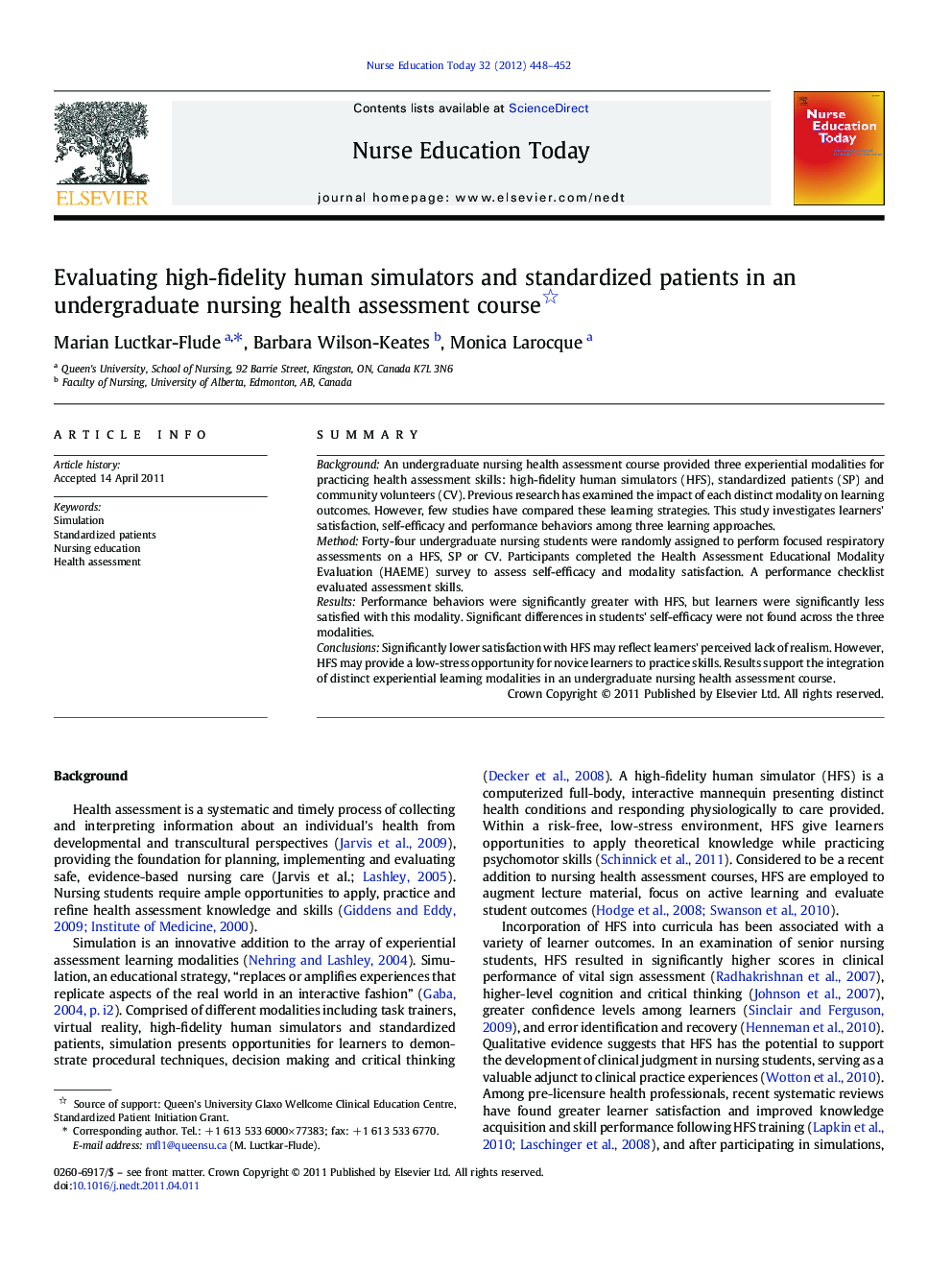| Article ID | Journal | Published Year | Pages | File Type |
|---|---|---|---|---|
| 368770 | Nurse Education Today | 2012 | 5 Pages |
SummaryBackgroundAn undergraduate nursing health assessment course provided three experiential modalities for practicing health assessment skills: high-fidelity human simulators (HFS), standardized patients (SP) and community volunteers (CV). Previous research has examined the impact of each distinct modality on learning outcomes. However, few studies have compared these learning strategies. This study investigates learners' satisfaction, self-efficacy and performance behaviors among three learning approaches.MethodForty-four undergraduate nursing students were randomly assigned to perform focused respiratory assessments on a HFS, SP or CV. Participants completed the Health Assessment Educational Modality Evaluation (HAEME) survey to assess self-efficacy and modality satisfaction. A performance checklist evaluated assessment skills.ResultsPerformance behaviors were significantly greater with HFS, but learners were significantly less satisfied with this modality. Significant differences in students' self-efficacy were not found across the three modalities.ConclusionsSignificantly lower satisfaction with HFS may reflect learners' perceived lack of realism. However, HFS may provide a low-stress opportunity for novice learners to practice skills. Results support the integration of distinct experiential learning modalities in an undergraduate nursing health assessment course.
